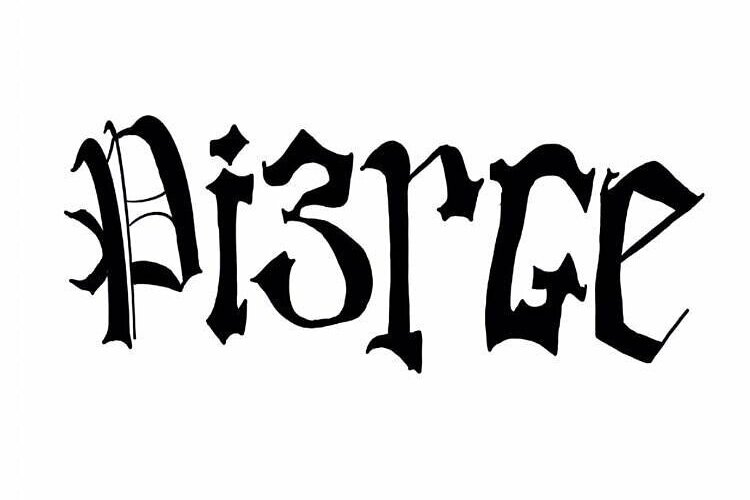WHY ETHICAL ELEGANCE?
ETHICAL FASHION IS SOMETHING NEAR AND DEAR TO MY HEART...
I've always been environmentally conscious.
In high school I started a club called "Green Geeks" where we'd eat vegan treats and watch environmental documentaries till the cows(priacy) came home.
The next few years in school, I spent my time in the library combing through records of sustainable initiatives in the modern economy, trying to find a way to blend my love for business with environmental policy.
To me, sustainable fashion is the answer to many of our environmental concerns when it comes to both legislation and economic prosperity as well. I created my tag #EthicalElegance to promote the idea that sustainability doesn't have to mean separating yourself from the world, or living in a hut without electricity or (God forbid) your iPhone. It can be something woven into the fabric of our lives (literally), even in the high-fashion life of the modern professional woman.
WHAT IS SUSTAINABLE FASHION?
In a commencement speech for Riverkeeper, fashion tycoon Eileen Fisher was quoted saying that “The clothing industry is the second largest polluter in the world ... second only to oil”
Other impacts include the toxic chemicals and dyes applied to the clothing, as well as the environmental impact of the fabrics themselves-- and even the way these raw materials are manufactured. Then on top of this, water usage to treat the clothing, where that water goes afterwards and the ecosystems it affects as well. There’s a humanitarian component to the movement, as sweatshops and forced labor become facts of life for garment makers in developing countries.
Just dealing with the fast fashion model market we’ve popularized today, estimates are that “2 million tonnes of consumer clothing waste is generated in the UK a year” according to a 2008 article from the magazine Ecologist-- and I’m sure that rate has been skyrocketing since then.
Such a dramatic statement might seem outrageous to the most of us, I mean, how much damage can a bunch of t-shirts do next to smokestacks and dirty coal? But her assessment is absolutely accurate. But with production-punk movements like upcycling, zero waste design, or reclaimed to wear, eco designers are giving recycling a real edge.
SLOW FASHION
Social media has sped consumer habits considerably in the past few years, and superstores like Zara and Forever21 are hallmarks of the new see now buy now throw-away culture. Slow fashion is a sustainable movement aimed at halting these shortsighted habits, lowering the unnecessary waste of a generation.
ETHICAL FASHION
The horrors of the enslaved workforce is hidden to most modern day consumers, but producers are becoming privy to the demand for fair trade labor, granting ethical wages to the people they employ. This mainly affects young women from third world or developing countries, “who work at the bottom of the international garment workforce.” This quote from Ecologist in 2008 continues to say that a main goal of ethical fashion is to “prevent exploitation” of the world’s most vulnerable citizens.
ECO FABRICS
One buzzed about fabric on the environmental market is bamboo, desired for its “luxuriously soft feel and flowing drape” according to Ed Mass in his 2009 article from the newsletter “Natural Life”. Bamboo is also easy to grow and has a low water intake and cost.
ORGANIC
Cotton, with its high intake in chemical pesticides as well as high water intake is a prime candidate for reform. The push for organic cotton farming, as stated by Maria Goldbach in her article “Coordinating Sustainable Cotton Chains for the mass market” as “an integrated farming approach without pesticides and one that respects the soil’s natural regeneration cycles.” She goes on to imply that this has positive effects both for the environment and for the health and financial security of the farmers involved.
A NEW INDUSTRIAL REVOLUTION
Eric Hesphendie drew an important conclusion in his 2010 article Accounting for Sustainability Performance. He said “[SUSTAINABILITY] CAN HELP IMPROVE OPERATIONS… ENHANCE TRANSPARENCY.. HEIGHTEN COMPETITIVENESS, AND ULTIMATELY BOOST THE COMPANY’S BOTTOM LINE."
This concept will be increasingly important in order to forward the principle of environmental transition within a competitive market economy, giving businesses more than altruism as a motive to uproot their company.
What can you do?
Find empowerment within your choice. Once you stop looking at the free market as the big boogeyman that is out to destroy the world, and instead look at it like an experiment of choice, you’ll find you hold a lot more power in what the world around you looks like than you think. Reward companies that have a system you believe in by buying and sharing their goods, and punish those who won’t comply by denying your business.
The power of substitutes is incredible, and the only reason that one of the biggest and wealthiest fast-fashion stores in the world (H&M) now has an environmentally conscious collection is because you demanded it.


